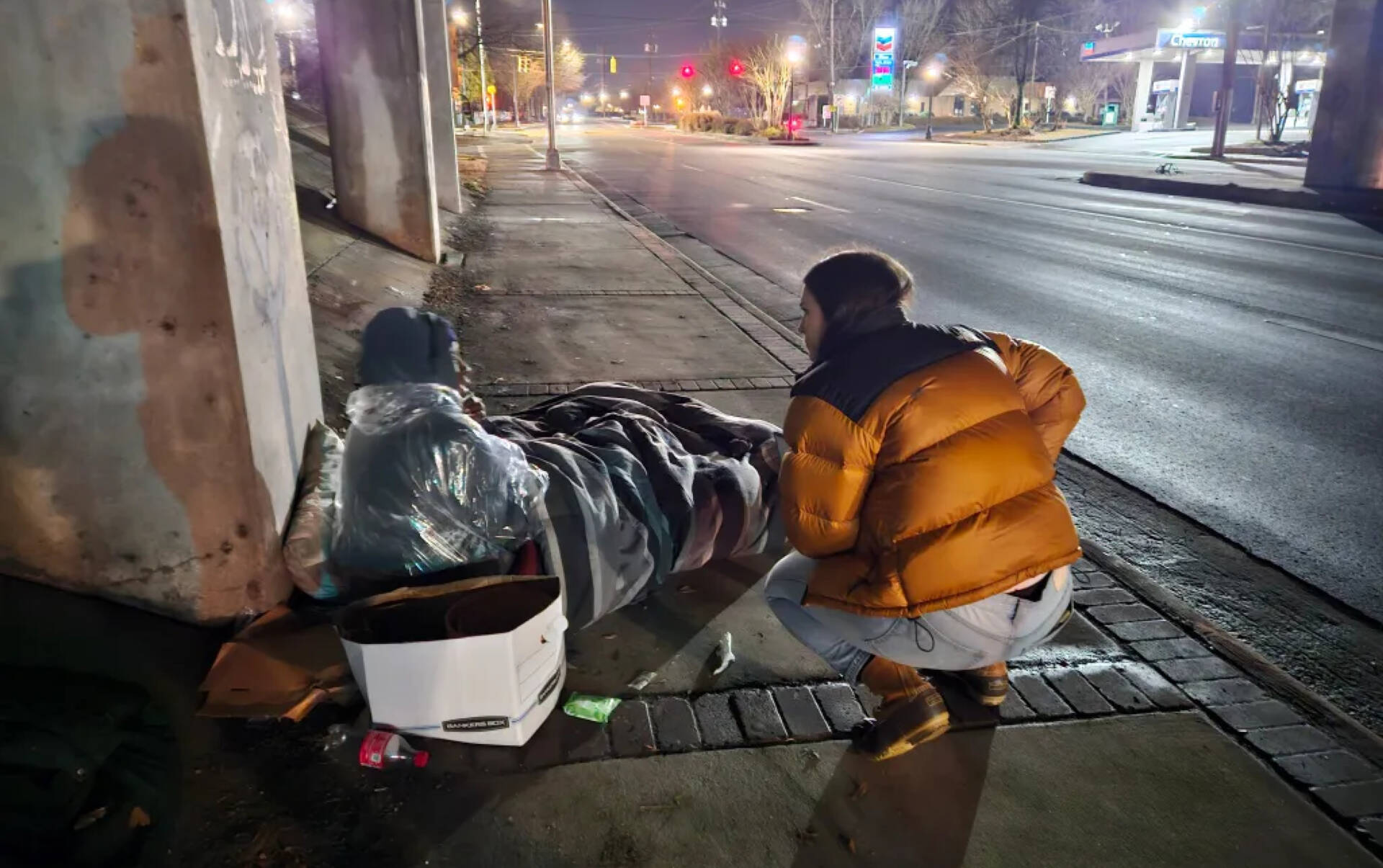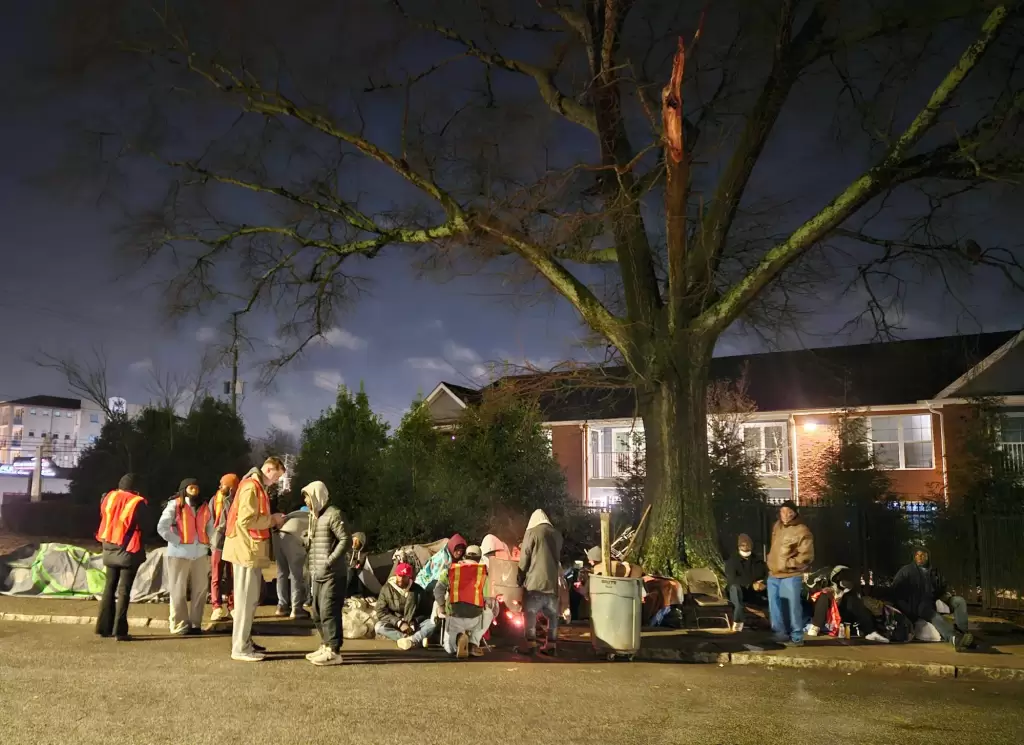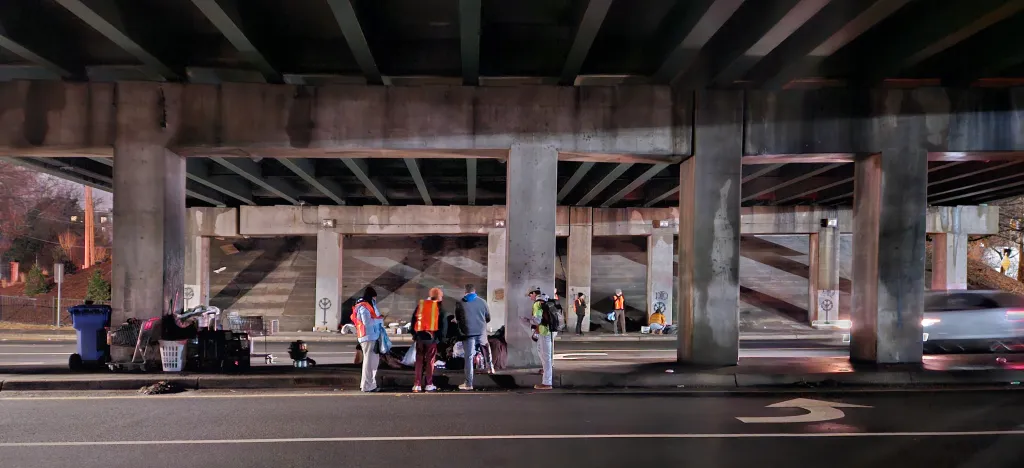
3Keys Works Alongside Partners for HOME in Annual Point in Time Count of Individuals Experiencing Homelessness
On a single night in January each year, cities across the United States conduct a Point in Time (PIT) Count of individuals experiencing homelessness. The PIT Count is a massive effort with the purpose of gathering essential insights to guide interventions, improve policies, and provide local information needed to apply for funding opportunities through the U.S. Department of Housing and Urban Development (HUD).
The City of Atlanta conducted its PIT Count overnight on Monday, January 27, 2025. Here, we explain what it looks like to accomplish the PIT Count around the city.
What happens during the PIT Count?
The Point in Time Count entails volunteers walking through neighborhoods and speaking one-on-one with every individual and family experiencing homelessness. This includes those who are currently unsheltered and those in temporary shelters. Wearing reflective vests and coordinated t-shirts printed with “Point in Time Count,” volunteers will approach individuals in public places and introduce themselves. After a few minutes of initial conversation, the volunteer asks a series of questions. Questions pertain to basic demographics, veteran status, the start and length of homelessness, etc.In the case of a family, each member is asked the same set of questions. While each survey contains standard PIT questions, additional questions can be tailored each year as needed by the organization collecting the local data.
The PIT Count doesn’t just end after one night. Additional surveys are conducted in the few days following the count at partner sites in order to capture those missed one the night the volunteers go out. When surveyed, individuals are asked where they slept on the night the PIT Count took place in order to accurately record their status at that time.
Volunteers not only collect data, they distribute packages of essential items, such as warm clothing, hygiene products, and food. Often, volunteers are working side-by-side with nonprofits and street teams who frequently support these same individuals with outreach and services, and so have a familiar face beside them when they’re speaking to people at night.

Near the Atlanta University Center, PIT Count volunteers speak with individuals experiencing homelessness. Photo credit: Sean Keenan, Atlanta Civic Circle.
Who manages the PIT Count?
The PIT Count in metro Atlanta area is managed by different cities and counties across the wide geography. In the City of Atlanta, Partners for HOME directs the Point in Time Count as the primary administrator for the Atlanta Continuum of Care, a program of HUD.* Separate PIT counts are held by Fulton and DeKalb counties in areas outside City of Atlanta.
Many partner organizations collaborate with Partners for HOME, including:
- Local and federal agencies such as HUD, CDC, Atlanta Police
- Department and the Atlanta Government, including the Mayor’s office
- Healthcare organizations including Mercy Care and Grady
- Business Partnerships including The Home Depot Foundation
- Continuum of Care providers (such as 3Keys)
What are the results of the PIT Count?
In addition to the main Point in Time Count on January 27, 2025, follow-up counts were conducted during the day between January 28 and February 3. The 2025 report will be published by summer 2025, at which time we’ll update this article with those numbers.
For a frame of reference, during the 2024 count, 300 volunteers worked with Partners for HOME to conduct surveys across 243 Atlanta neighborhoods. Volunteers are critical to executing and collecting data for such a large undertaking.
In 2024, 2,867 persons in the City of Atlanta were counted as sheltered or unsheltered individuals experiencing homelessness. Of those, 94% are facing serious mental illness, substance abuse disorders, and HIV/AIDS. This subset, which falls under the definition of chronically homeless, represents the largest increase in subgroups surveyed by the PIT Count. HUD categorizes an individual as chronically homeless if they possess at least one disabling condition—such as a substance use disorder, mental illness or chronic health condition — and have either been homeless continuously for at least one year or have experienced homelessness four or more times within the last three years, with these episodes totaling at least one year.
3Keys prioritizes housing and care for those experiencing chronic homelessness through permanent supportive housing. These individuals are the most vulnerable due to increased risk factors and greater barriers to stable housing. The PIT Count found that, out of the four types of housing, permanent supportive housing was highly utilized at 91%. (Other categories include emergency shelters at 67% utilization, transitional housing at 76%, and rapid re-housing at 100%.)

Volunteers speak to people under I-20 on the night of the 2025 PIT Count. Photo credit: Sean Keenan, Atlanta Civic Circle.
How to volunteer for the PIT Count
If you’re interested in volunteering for the Point in Time Count in future years, please visit the Partners for HOME website in January. There, you’ll be able to sign up for either the night count or the follow-up day counts.
Additional Information
The information gathered by the PIT Count is extensive and Partners for HOME produces a detailed report each year. For further reading and understanding, you can view reports here from prior years.
* From the Partners for Home website: The Atlanta CoC is comprised of over 170 nonprofit, government business and community stakeholders dedicated to ending homelessness the City of Atlanta. The Continuum of Care is a HUD program that promotes community-wide commitment to the goal of ending homelessness and provides funding for efforts by nonprofit providers and state and local governments to quickly rehouse people impacted by homelessness. The Atlanta CoC works with Partners for HOME to execute its strategies to end homelessness in the City.
